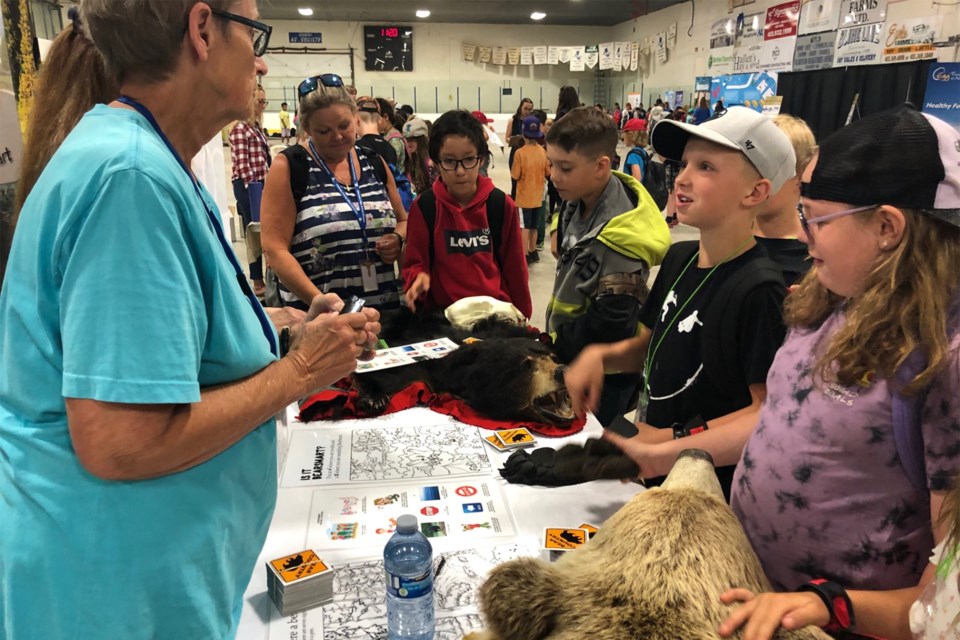SUNDRE - Sportsmen hunting in the district this fall, whether using bows or rifles, need to make bear awareness a first priority at all times, says Paul Fraser, the chairman of the Mountain View BearSmart Society (MVBS).
And one vital tip is to make sure any bears or cougars nearby know you are in the area, he said.
“You can surprise a bear if you are being very quiet when you are hunting,” Fraser told the Albertan on Friday. “Most hunters don’t want to make noise because they don’t want to scare away or alert the game.
“That’s counterproductive to what you should do in bear country, where you want to let bears know that you are there. Some bears are scared away by human activity and other bears key on rifle shots.”
MVBS is a not-for-profit organization that promotes safety in bear country through workshops, open houses and its regular bearsmart online updates informing residents and visitors about bear and cougar activity in the district.
Fraser explained that if a hunter is successful in killing game, the danger of a bear encounter remains.
“You want to make sure if you do shoot something and if you can’t get it out all at once at one time, if you have to return to the kill to get the rest of it, you really want to make sure there are no bears on that kill,” he said.
“Pay close attention if you have to go back to retrieve the kills. At that point it would make sense to make lots of noise.”
Carrying bear spray at all times when hunting or otherwise active in bear county is always a must, he said.
Bears will remain active in the area until the weather turns cold, even into December, he said.
“If it’s still nice out they will still be out there,” he said. “Really pay attention to your surroundings. If there is good bear food around you, you can expect there will be bears in the area. And there is still some food out there.”
MVBS has issued a list of tips for hunters, including the following:
- Avoid hunting alone and make an emergency plan with your hunting partners. Always let someone else know where you are going and when you expect to return.
- Watch for signs of bear activity, such as fresh scat, clawed trees and tracks. Know bear habitat and be extra cautious in areas where bears might feed, such as berry patches, grain fields and beehives.
- Be extra alert at dawn and dusk where bears are most active.
- Be aware that wind, rain and flowing water can mask the sound of your approach, which increases the risk of a surprise encounter with a bear.
- Use horses to decrease the chances of a bear encounter.
- When tracking a wounded animal, keep in mind that a bear may be doing the same thing.
Fraser noted that if the presence of a bear or other wildlife is a human safety concern or damaging to property or livestock, residents should call Fish and Wildlife for assistance at 1-800-642-3800. If the situation is a public emergency, call 911.



